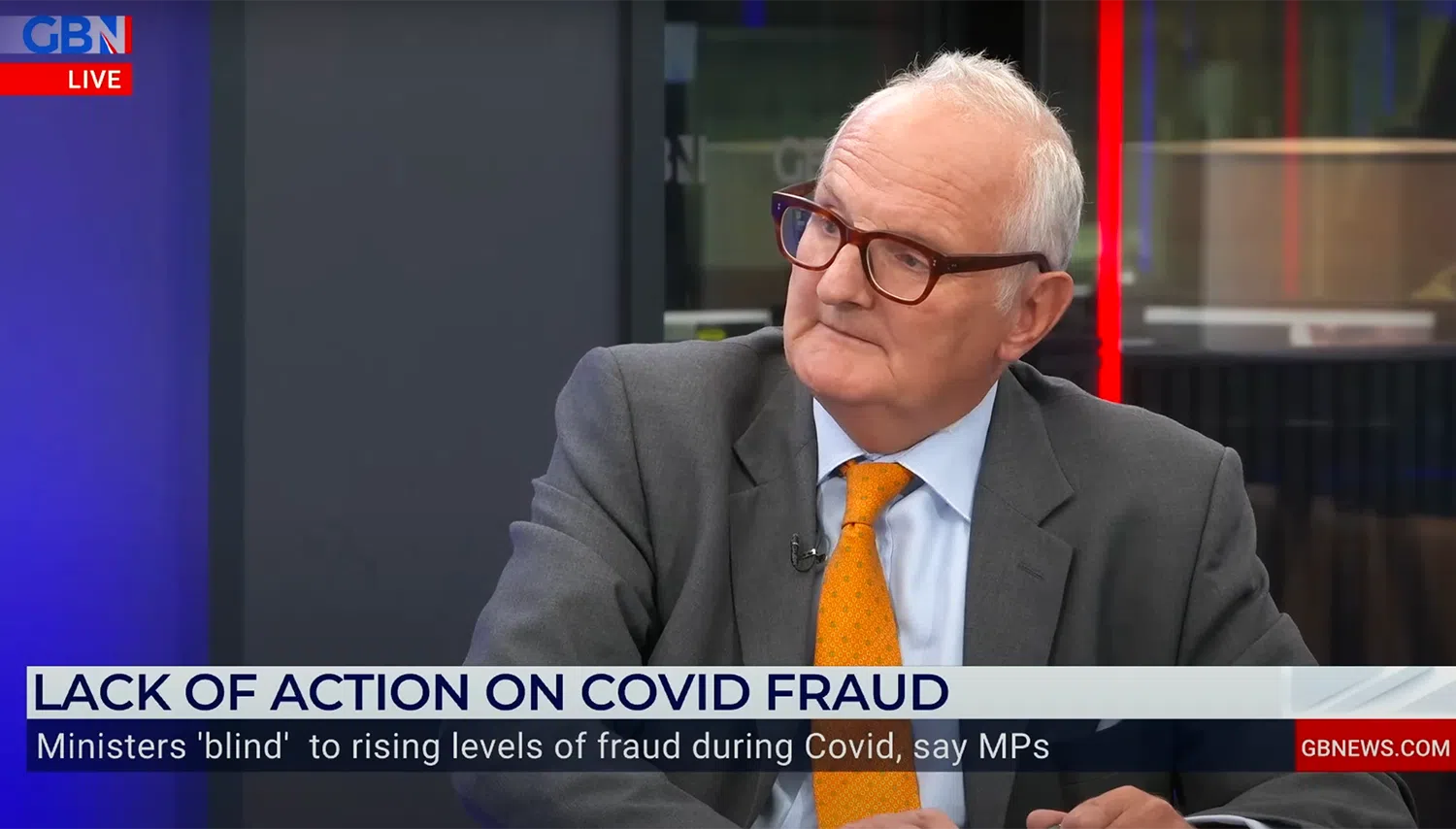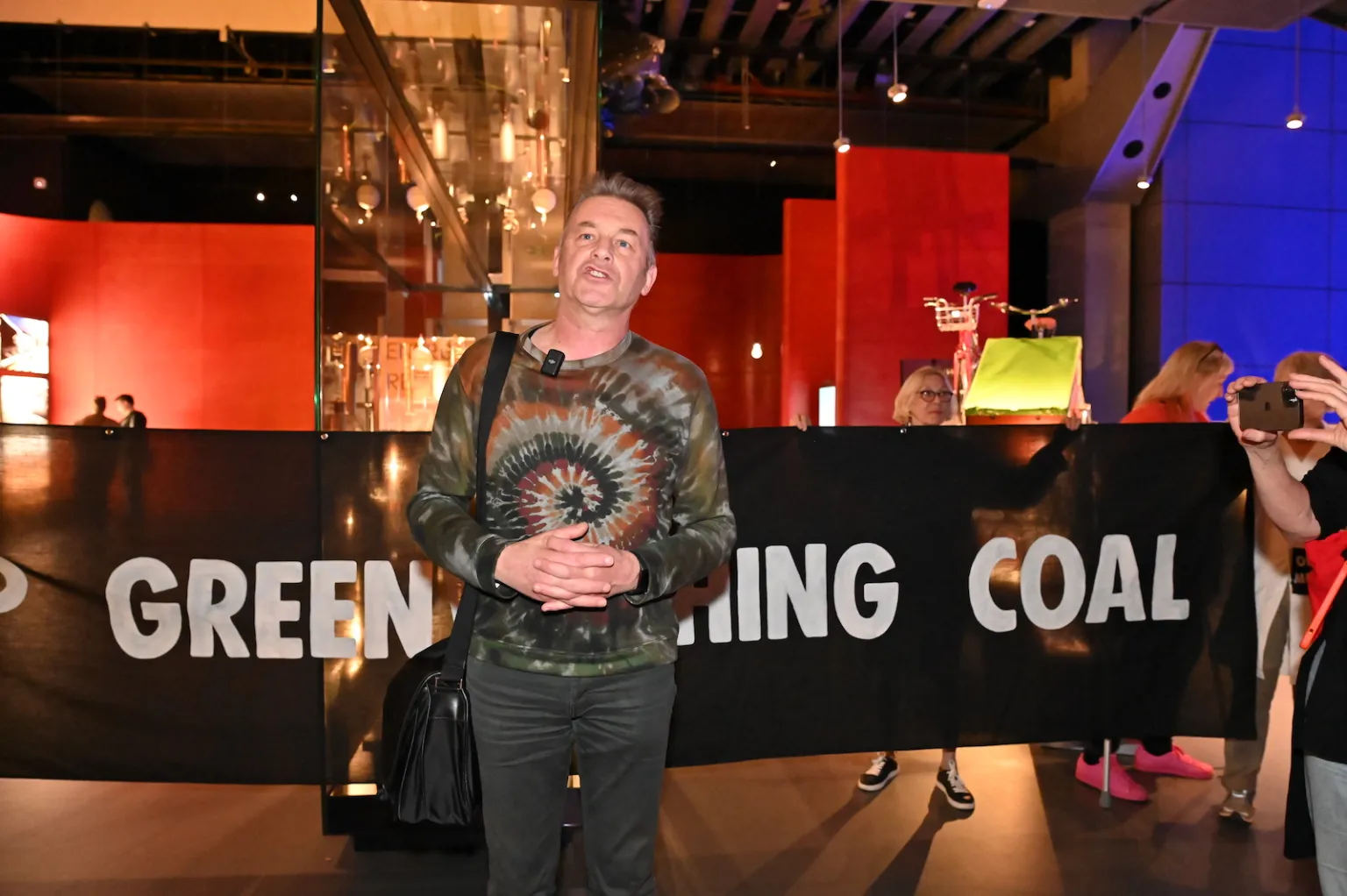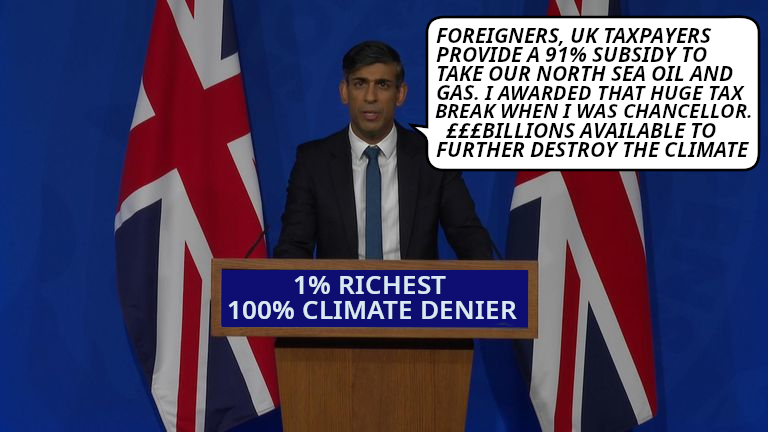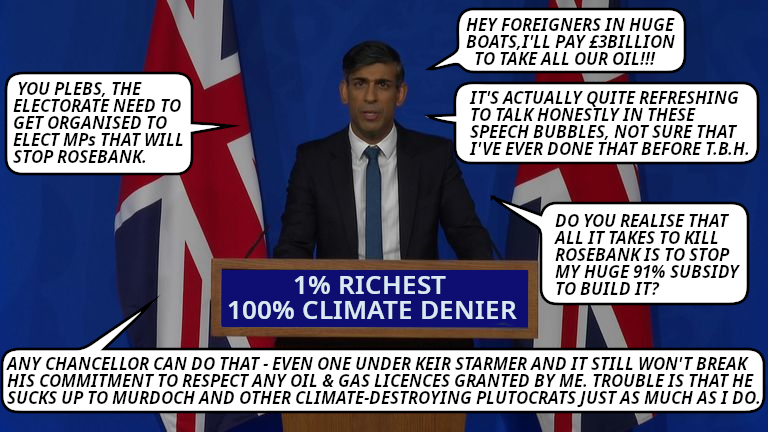BP and Shell Funded Group Was Sunak Government’s Most Popular Think Tank in 2023
Original article by Andrew Kersley republished from DeSmog

Ministers met with Onward, accused of being “a fossil fuel dinosaur in new clothing”, more than any other think tank last year.
An oil and gas funded group had the most registered meetings with government ministers among all think tanks last year, DeSmog can reveal.
Onward describes itself as a think tank bringing “bold and practical ideas for the centre right”. Since its launch in 2018 it has gone through a meteoric rise, quickly becoming one of Westminster’s most influential think tanks.
DeSmog analysed the meetings of every government department in 2023 and found that ministers met with the group on 17 occasions across the year, an average of well over once a month and more than any other think tank.
Onward doesn’t disclose full details of its funding but unlike many think tanks it publicly shares the list of organisations that have donated “more than £5,000 twice a year” to the group.
Its list of funders in the first half of 2023 included several oil and gas giants, including Shell, BP, and Equinor. These three companies are also listed as members of Onward’s ‘Business Network’, which is open to those who donate £12,000 a year. In exchange, Onward says that it offers its members quarterly “invitations to private roundtables with senior policymakers and opinion formers”.
Onward offers other perks to its Business Network members, including the opportunity to see its reports before they are published, though it insists that donors are precluded from influencing the contents of its publications.
In the second half of the year, Onward also received funding from Lord Michael Spencer, a Tory mega-donor and former party treasurer who holds shares in oil and gas companies.
Onward’s corporate supporters included Drax, the UK’s largest single source of CO2 emissions. Drax is the operator of a major wood pellet burning power station in Yorkshire that receives billions of pounds in government environmental subsidies despite producing millions of tonnes of carbon emissions a year while burning trees from historic woodlands.
“Onward might sound progressive, but it looks suspiciously like a fossil fuel dinosaur in new clothing,” Green Party co-leader Carla Denyer told DeSmog.
“With so much fossil fuel money oiling the wheels of Westminster it is small wonder the Tories are maxing out oil and gas licences and have granted approval for Rosebank, the largest undeveloped oilfield in the North Sea.
“It’s time to break the links between government and fossil fuel funded think tanks and engage instead in a bit of blue sky thinking.”
Onward’s meetings in 2023 included two with ministers from the Department for Energy Security and Net Zero (DESNZ), which is responsible for the government’s climate policies.
One of those meetings, held in June with Net Zero Minister Andrew Bowie, was to discuss the role of hydrogen in the transition to net zero.
Though it’s widely acknowledged that hydrogen will have a role in decarbonising some industrial processes, it has become the subject of growing controversy. Experts have warned that exaggerating the potential of the technology risks delaying climate action by distracting from the transition to renewable energies. Hydrogen is favoured by gas companies, as it is often made using natural gas and deploys existing infrastructure.
As a result, hydrogen continues to be the subject of a major lobbying effort in Westminster.
Vested interests, including oil and gas companies, have spent hundreds of thousands of pounds in recent years sponsoring political party conferences and parliamentary advocacy groups, advocating for the role of hydrogen in the clean energy transition.
UK gas infrastructure operator National Gas hosted an Onward event at the 2023 Conservative conference on the UK’s “need” for hydrogen, entitled “Gassed up”.
An Onward spokesperson said that as a not-for-profit organisation the group relies “entirely on the generosity of our network to support our research programme”, which allows the group to “routinely meet and share our research with government and shadow ministers”.
They stressed that they “do not take commissions from companies or government for specific pieces of research” giving the group “complete editorial control over our priorities and conclusions”.
Onward and Tufton Street
Onward is currently led by former Financial Times journalist Sebastian Payne, who is attempting to become a Conservative parliamentary candidate.
The think tank’s advisory board and board of directors are manned by Conservative MPs and peers, former Conservative Party treasurers, and business figures. Current Net Zero Secretary Claire Coutinho was a member of the Onward advisory board prior to her appointment to the Cabinet.
When Rishi Sunak became prime minister in October 2022, it was reported that Onward alumni had taken up several advisory posts in his government – the second highest number of any think tank. Sunak’s deputy chief of staff Will Tanner, who leads on policy, is the co-founder and former director of Onward.
Onward alumni were only outnumbered by former staff members of Policy Exchange, a right-wing think tank that formerly employed Sunak. Policy Exchange has received funding from fossil fuel giant ExxonMobil, and has been credited by Sunak for helping to draft laws that have cracked down on climate protests. DeSmog has also revealed that Shell and BP were allowed “ample opportunity” to shape a Policy Exchange report on carbon taxes that was later endorsed by Sunak’s government.
Over the last year, the prime minister has also overseen a row-back of several key climate pledges. In July, Sunak confirmed that his government planned to issue hundreds of new oil and gas licences, a move condemned by opposition MPs and charities. Oxfam’s climate policy adviser Lyndsay Walsh said the move “will send a wrecking ball through the UK’s climate commitments”.
Sunak has said his government intends to “max out” the UK’s oil and gas reserves, and has legislated to introduce annual North Sea licensing rounds. This is despite the International Energy Agency stating that new fossil fuel exploration is “incompatible” with the Paris Agreement target of limiting global heating to 1.5C.
Regulators also approved government plans for the development of the controversial Rosebank oil field, operated by Equinor, even though the project has been dubbed a “carbon bomb” by environmental law charity ClientEarth.
In September, the government scrapped a number of net zero pledges, including pushing back a ban on the sale of combustion engine vehicles, and weakening plans to phase out gas boilers.
Sunak’s predecessor Liz Truss had close ties to a number of “free market” think tanks based in and around 55 Tufton Street, Westminster. This included the Institute for Economic Affairs (IEA), a think tank that was funded by BP for at least 50 years. Former IEA director general Mark Littlewood said that Truss had spoken at IEA events more than “any other politician over the past 12 years”, and the pair have now launched the group Popular Conservatism to lobby for more libertarian policies.
DeSmog found that the IEA met with ministers on nine occasions in 2023, almost half as many as Onward.
Original article by Andrew Kersley republished from DeSmog







